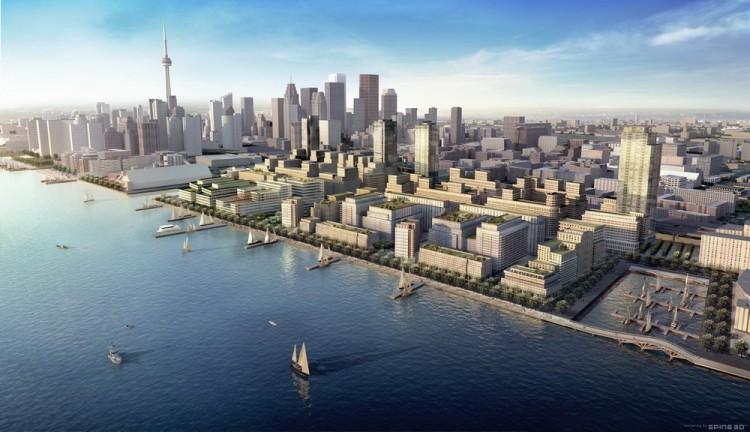TORONTO—Toronto has been named one of the top seven intelligent communities in the world by the Intelligent Community Forum (ICF).
The city earned the nomination in part for its waterfront renewal project, Waterfront Toronto, which is in the process of turning a huge swathe of brownfield land from an industrial graveyard into a new centre for North America’s third-largest knowledge economy.
The project is the largest urban renewal development in North America. But Toronto also features five universities with specialized programs, some with incubators that accelerate innovations in Internet and communications technology businesses.
ICF was established on the belief that growing globalization and the need for broadband connectivity is revolutionizing economies worldwide.
An “intelligent community” is therefore a city or region that’s able to display its innovative approach to using broadband, including DSL, cable, satellite, and wireless to create a competitive economy on the world stage.
“The ICF recognizes, in part, the catalytic work underway by Waterfront Toronto to build and promote the waterfront as a world-leading intelligent community,” councillor Michael Thompson, chair of Toronto’s Economic Development Committee, said in a city release.
Toronto Mayor Rob Ford said that not only does Toronto have one of the largest information technology sectors in Canada, but there will be an increase of 35,000 employees in the field over the next five years. There are currently around 160,000 people employed in the field.
“It’s great that Toronto has been recognized as a top seven intelligent community,” Ford said in the release.
The city promises to establish a super fast open-access broadband community network with the most advanced fibre-optic network in the world, allowing for Internet speeds 500 times that of average connection speed across North America.
“The ultra-high speed broadband community network will help establish Toronto’s waterfront as the new centre of innovation and stimulate economic growth by helping the city remain competitive,” said president and CEO of Waterfront Toronto John Campbell.
According to ICF’s website, the top seven “represent models of economic and social transformation in the 21st Century.” The candidates do not necessarily have to be the most advanced, but they have to be leaders that show good practice of broadband deployment and act as good examples for other cities and towns.
The Awards Process
The ICF collects nominations from communities around the world for a yearlong, three-stage process to select the world’s most intelligent community.
In the first round, 21 cities are shortlisted.
Following a lengthy questionnaire presented to the nominees, and a rigorous analytic method, the ICF narrows that down to seven finalists. Each year the nominees must also conform to a theme; for 2013 they had to display the relationship between innovation and employment in the community.
The last step of the selection process is an awards luncheon at the Building the Broadband Economy summit. This year’s luncheon will be held on June 7 in New York City, where ICF will announce Intelligent Community of the Year 2013.
Between now and June, the organization will aggregate data from each community to a third-party research company, which will then do a quantitative analysis based on dozens of determining factors and give each community a score.
Representatives from ICF will visit each community to check that the data is accurate, and to make separate reports which will go though a separate ranking and contribute to each community’s final score.
As well as Toronto, Stratford was also nominated. The quaint Ontario town, known largely for its Shakespeare festival and as the hometown of Justin Bieber, has carried out an innovative strategy to wire itself for the future with a 70-kilometre open-access fibre network with a WiFi overlay.
Other candidates competing for this year’s title are Columbus, Ohio; Taichung City, Taiwan; Taoyuan County, Taiwan; Oulu, Finland; and Tallinn, Estonia.
Previous winners of the title include Riverside, California, in 2012; Eindhoven, Netherlands, in 2011; and Suwon, South Korea, in 2010.
The Epoch Times publishes in 35 countries and in 21 languages. Subscribe to our e-newsletter.
